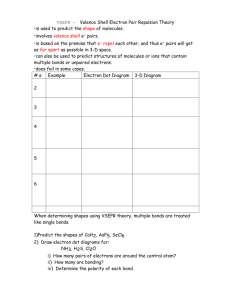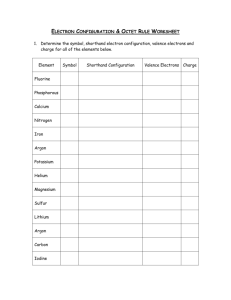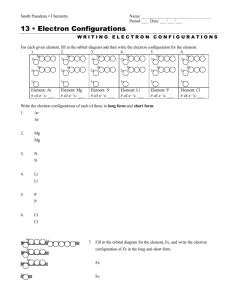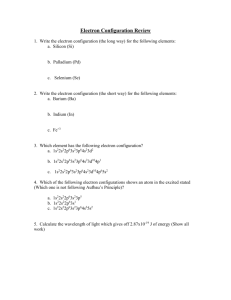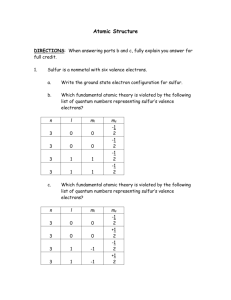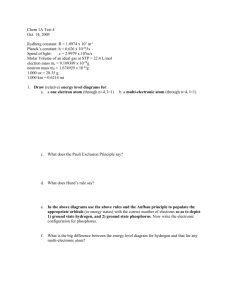Exam III SPOTS
advertisement
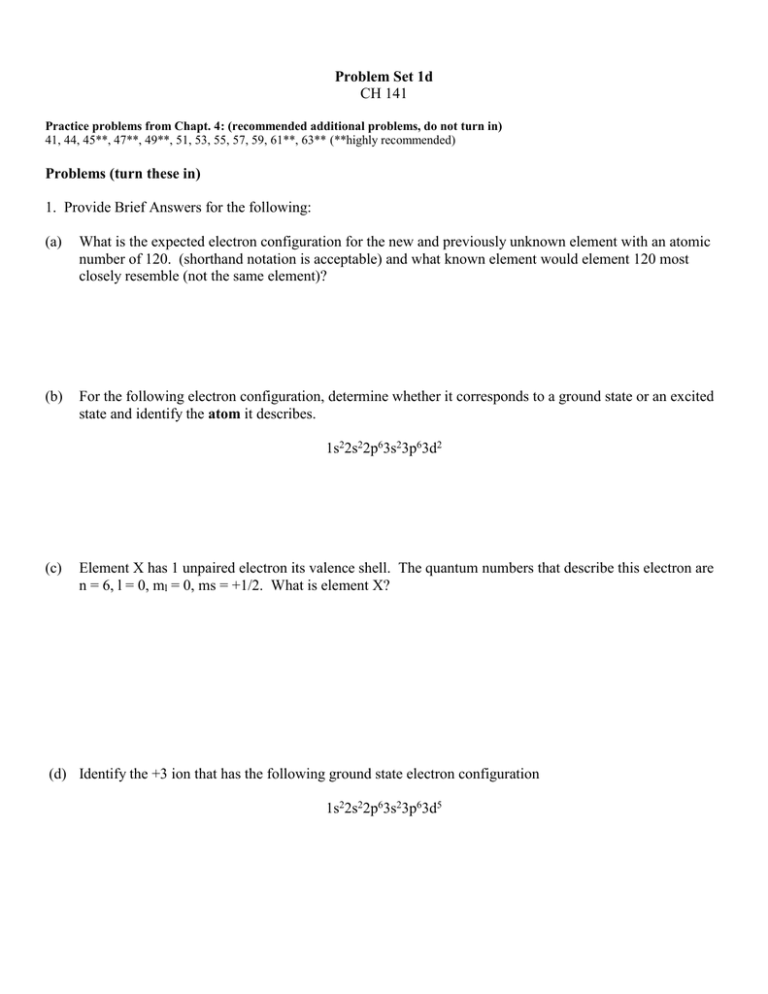
Problem Set 1d CH 141 Practice problems from Chapt. 4: (recommended additional problems, do not turn in) 41, 44, 45**, 47**, 49**, 51, 53, 55, 57, 59, 61**, 63** (**highly recommended) Problems (turn these in) 1. Provide Brief Answers for the following: (a) What is the expected electron configuration for the new and previously unknown element with an atomic number of 120. (shorthand notation is acceptable) and what known element would element 120 most closely resemble (not the same element)? (b) For the following electron configuration, determine whether it corresponds to a ground state or an excited state and identify the atom it describes. 1s22s22p63s23p63d2 (c) Element X has 1 unpaired electron its valence shell. The quantum numbers that describe this electron are n = 6, l = 0, ml = 0, ms = +1/2. What is element X? (d) Identify the +3 ion that has the following ground state electron configuration 1s22s22p63s23p63d5 2 2. Provide answers for the following: Full electron configuration for cobalt Shorthand electron configuration for chromium Valence electron configuration of Molybenum, Mo Shorthand electron configuration for Rh3+ Valence electron configuration of Re4+ Orbital diagram for Arsenic, As Orbital diagram for sulfide ion Orbital diagram for an excited state of phosphorous 3 3. Give TWO EXAMPLES of the following: (a) Two anions with a s2p6 ground state valence shell configuration (b) Two elements with a s1p3 valence shell excited state (c) Two orbital configurations that do not follow Hund’s Rule. (d) Two transition metals with 7 valence electrons (e) Two orbitals with the quantum numbers n= 4, ml = 2 TWO EXAMPLES

